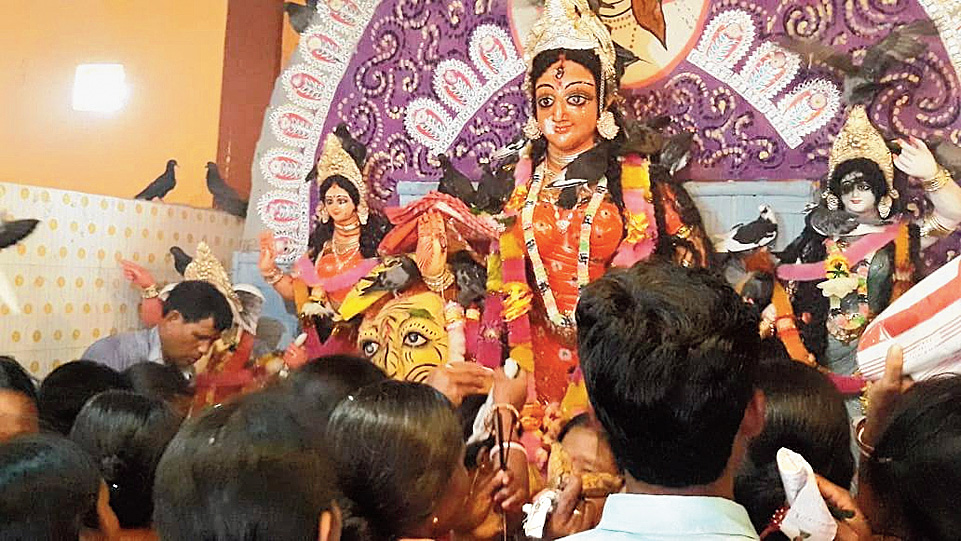Dashami has passed and Puja has ended in most parts of Bengal — except in swathes of Jalpaiguri, Alipurduar and Cooch Behar.
Bhandani Puja was held on Saturday, a day after Dashami, in pockets of the three districts, extending the Puja celebrations.
“It is a century-old practice, particularly among the Rajbangshi community of north Bengal, to worship Devi Bhandani, a different form of Durga on ‘Ekadashi’, the day after Dashami. Even now, Bhandani Puja is held in a number of places in some of the districts in this region,” said Umesh Sharma, a historian and researcher based in Jalpaiguri.
In Jalpaiguri, the Bhandani Puja draws the largest crowds at Barnish in Maynaguri block. Some other places where the puja is held include Malbazar, Mekhliganj, Mathabhanga, Nagrakata, Khayerkata, Alipurduar and Ranirhat.
According to Sharma, there are a number of mythologies about the puja. One of these says that after Dashami, as Durga returned in Shiva’s place, the goddess was in a gloomy mood. She returned from Kailash and at foothills of the Himalayas, she was venerated by locals for yet another day.
The goddess then returned happily and blessed her devotees with prosperity. Along with Bhandani, her children are also worshipped. The only difference is that here the goddess’ mount is a tiger and not a lion.
Sharma mentioned that in areas where the puja is held, there were thick forest covers half-a-century ago. “Tiger was the principal predator in the wildlife chain of this region and thus, the animal is worshipped as Bhandani’s mount,” he said.
Some other researchers pointed that among the Rajbangshi community, the practice of organising Durga Puja had started late. Earlier, it was the kings of Cooch Behar and Jalpaiguri who used to celebrate the puja
“As there was no practice of ‘sarbojonin’ puja in those days and Durga Puja was held only by royals, a section of the local landed gentry or the ‘Jotedars’ started hosting the Bhandani Puja. This is another unique practice which is alive even today,” said Anandagopal Ghosh, another historian.











